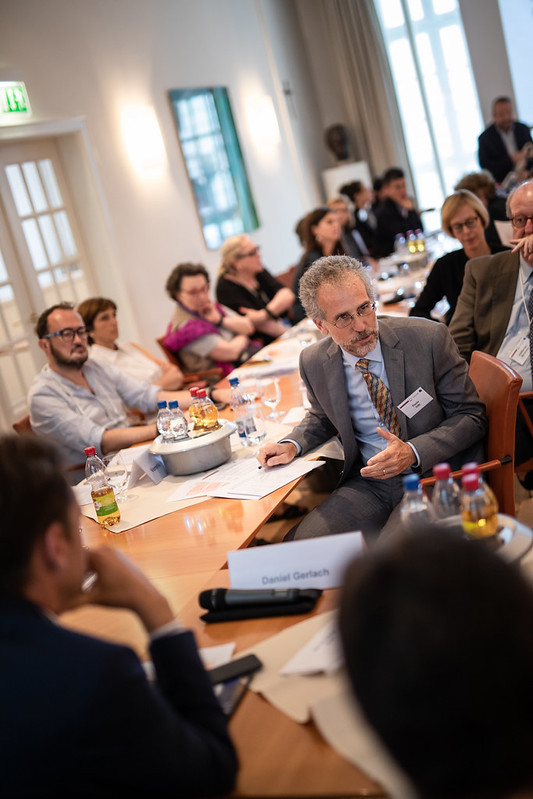Euro-Mediterranean Heritage and Society discussed at Berlin Summit
The Maecenata Foundation, a pro-active German civil society think tank, organised the Panel Discussion “ONE Heritage – Heritage and Society in the Euro-Mediterranean Community” on 19 June on the occasion of the European Cultural Heritage Summit in Berlin together with the MENA Governance Centre of the Humboldt Viadrina Governance Platform, and chaired by Eleftherios Ikonomou, Udo Steinbach, and Rupert Strachwitz. The three different panels brought delegates of all ages from academia, cultural institutions, and civil society and from countries all around the Mediterranean. This event built on several international conferences (Italy in 2013 & 2015 and Greece in 2017) on “Talking, Learning, Working, and Living Together” which took place in the frame of the foundation’s programme “Europe Bottom-Up” ant its most important project “Europa and the Mediterranean”.
Europa Nostra Vice-President Costa Carras participated in the 2017 conference “Remember for the Future – The Mediterranean As a Memory Space” with discussions about the cultural heritage that Europe shares with everybody who lives around the Mediterranean. Together with the other participants, they devoted their presentations to some particularly relevant and frequently overlooked aspects of the vital precondition of rebuilding trust and thus reconstructing the common space, as soon as politics permit civil society to do so. Hence, it appeared relevant to introduce these findings into the debates of the European Cultural Heritage Summit with a discussion revolving around three panels:
- Our Common Heritage;
- The West-Eastern Divan;
- The Transmission of Images.
The first panel was dedicated to tangible cultural heritage issues. The destruction and revival of Aleppo in Syria (Mamoun Fansa) raised awareness of our endangered common heritage, while ‘Turks in the Palace’ (Cem Alacem) reminded the audience of the history of intercultural relations. Paolo Vitti, Board Member of Europa Nostra, particularly highlighted the intertwined cultural heritage of the Eastern Mediterranean.
The second session focused on language, literature (Hebatallah Fathy) and ideas (Daniel Gerlach and Markus Hilgert), with some controversial issues being raised. Is not our heritage being misused for political ends? Is it not being destroyed for ideological reasons? Is there a neo-colonialist aspect that needs to be addressed? A lively and critical discussion ensued, but everyone seemed to agree on one important point: The preservation of our common heritage is not inherently and universally accepted; it requires some well-argued advocacy.
Finally, the third session sought to provide some guidelines on how this might be achieved – not by just celebrating beauty, but by putting forward arguments that resonate with the pressing issues modern society is facing. Costa Carras, made a strong written case for the ‘Golden Rule’, while Thomas Würtz and Sonja Hegazy bridged the divide between past and present and East and West by linking our common heritage to modern day normative societal issues such as generating mutual respect, creating a level playing field, providing identity, improving the knowledge and experience base, and establishing cells of networks that may prepare now for the colossal issues of the future.
The Maecenata Foundation will pursue this initiative further with a publication in the foundation’s “Europe Bottom Up” series compiling conference papers as well as a comprehensive report to be available for free download on www.maecenata.eu.







